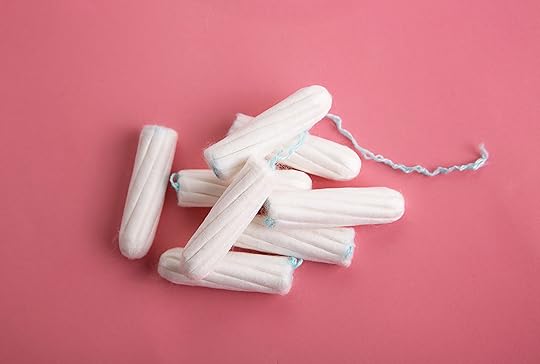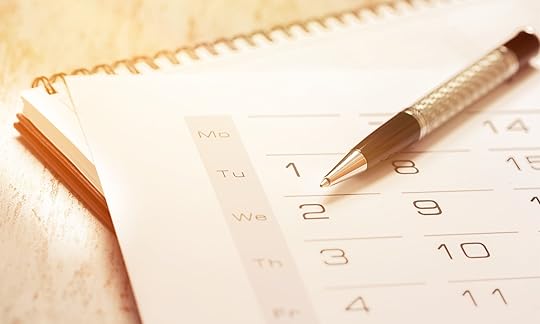What Your Period Can Say About Your Health
Hey guys!
When I told my story about losing my period due to extreme dieting, it opened the door to sooo many of you sharing your own experience with the same thing. It also made me realize that even though your period health is soo important for women, it’s not really talked about enough.
The final straw for me was when I read so many comments on my other post saying you were told not to worry about losing your period when you were a young athlete. That it wasn’t really a big deal.
But it IS a big deal.
I wanted to dive deeper into menstrual health, because your period can tell us so much about what’s going on inside our bodies. Your period health is important. So let’s learn all we can about it, shall we?!

The Menstrual Cycle
Each part of the menstrual cycle is important in its own unique way. When you start your period, a new cycle begins! Some other key parts of the menstrual cycle include:
Follicular Phase – This actually starts on the first day of your period, too. During this phase, the ovaries produce follicles that carry immature eggs. When the eggs mature, the healthiest one gets to move onto the next phase.
Ovulation – Next, the healthy, mature egg travels to the uterus. This is when it’s possible to get pregnant! The egg sticks around for about 24 hours and if it isn’t fertilized, it dissolves.
Luteal Phase – What happens next depends on whether or not the egg was fertilized. If it was, then you’re pregnant! Estrogen and progesterone stay high and the lining of the uterus remains thick for the egg to implant. Some people call this phase “the two-week wait.”
If you’re not pregnant, your hormone levels drop and this signals the start of your period. Then the whole cycle starts over!
What’s Normal?
“Normal” varies a lot and knowing if something is wrong really depends on what’s normal for you!
If you’re not sure, here are a few things you can look out for:
Total length – A cycle that lasts 21 to 35 days is considered regular
Period length – The average period lasts from 3 to 7 days
Flow – This really varies from person to person!
Period symptoms – It’s totally normal to experience PMS symptoms like moodiness, mild cramping, fatigue, cravings, headaches, and bloating before or during your period!

Should You Track Your Period?
The best way to pay attention to your body and catch any signs that something is off is to track your period. It’s also just helpful to know where you’re at in your cycle! It definitely helps me to prepare myself for period symptoms.
If you want to track your period health, there are tons of apps (free ones, too) that do all of the work for you! All of them track everything like cycle length, fertility, flow, and PMS symptoms. Here are a few that I found:
Signs That Something Is Off
Anything out of the ordinary with your cycle is a symptom that something is off. And THAT is why I decided to do some research and write this post. So many women don’t realize that paying attention to your period is one of the best ways to listen to your body!
I wish I had known this when I was younger.
SO. Some specific things to look out for/reach out to your doctor about include:
Abnormal bleedingPainIrregular cycleCompletely skipping a periodExtreme mood changes around your periodLike I said before, anything that is “off” for you is 100% worth looking into. If you do notice that there could be an issue, some potential causes could be:
Birth controlHormonal imbalance caused by a condition like PCOSUterine fibroids (noncancerous growths)PregnancyOver exerciseBeing underweight or having low body fatEating disorders
The list doesn’t end there, but those are some common ones! Also, remember that changes in your cycle don’t ALWAYS mean something serious is going on, but it’s still always good to pay attention and talk about it with your doctor.

How To Keep The Flow Healthy
So that was a VERY high-level overview of what goes on during the menstrual cycle. But the most important part of this post might be this – what can we do to keep our menstrual cycle functioning in a healthy way?
Lifestyle.
You have to feed your body and you have to feed it well. Maintaining a healthy level of activity is important too. Stress and sleep? Also crucial.
Most importantly, you have to pay attention and listen to your body when it’s trying to tell you something’s up or it needs rest.
AS ALWAYS, I’m not a doctor or a pro in any kind of way in this area. I’m just here to do some research and share what I learned with you to spread awareness and educate the ways that fitness and nutrition impact the body as a whole.
If you want to know more or have concerns, pleaseeee get in touch with your doctor!

Cassey Ho's Blog
- Cassey Ho's profile
- 49 followers



